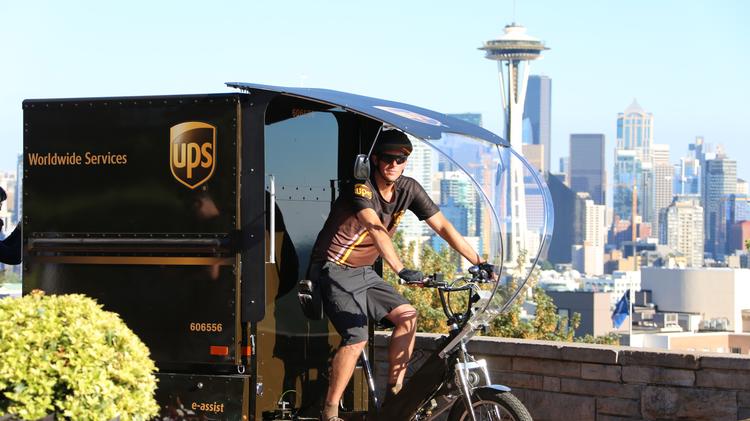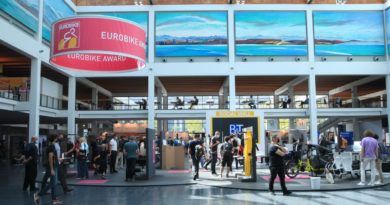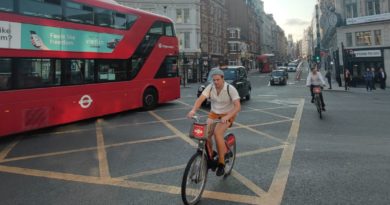Focus: UPS returns to bike roots in Seattle with e-Bike delivery project
UPS started in Seattle in 1907 as a bicycle messenger company. Now the firm is experimenting with e-bikes in its home city, with the University of Washington’s Urban Freight Lab assessing if e-bikes can cut it there.
Multi-million dollar global logistics firm UPS has revamped its ‘urban delivery offering’ for Seattle, incorporating cargo e-bikes with custom, modular package delivery trailers in selected areas. The Atlanta headquartered firm says it is committed to operating more sustainably, with the pilot delivery project going some way to address growing traffic congestion and air quality concerns locally.
UPS has incorporated e-bikes into its operations since 2012, with Hamburg, Germany blazing the trail as a prototype scheme for the logistics firm. The company also operates inner-city delivery projects with delivery on foot and by bike in more than 30 major cities worldwide, including Leuven and Mechelen, Belgium; Paris and Toulouse, France; Frankfurt, Herne, Offenbach, Oldenburg and Munich, Germany; Dublin, Ireland; Rome and Verona, Italy; and London. Pittsburgh, USA also sees UPS ebikes at work and now in Seattle the pilot scheme will run in the historic Pike Place Market and downtown area.
The University of Washington’s Urban Freight Lab will be charged with evaluating the cargo e-bikes reliability, design and integration into Seattle’s infrastructure over the next year. The Urban Freight Lab is an initiative that brings together transport engineers and urban planners who manage public spaces with retailers, freight carriers and technology companies supporting transportation solutions. UPS will share data and analyses from the pilot for assessment against two of the lab’s key objectives: improving first delivery attempts and reducing “dwell time,” both of which should reduce traffic congestion and pollution.
“While we have launched cycle logistic projects in other cities, this is the first one designed to meet a variety of urban challenges,” said Scott Phillippi, UPS’ senior director of maintenance and engineering, international operations. “The modular boxes and trailer allow us to expand our delivery capabilities and meet the unique needs of our Seattle customers. It’s exciting to return to our roots – UPS started in Seattle in 1907 as a bicycle messenger company. We’re looking forward to being able to offer these customisable urban delivery solutions to other cities nationwide.”
The cargo e-bike is part of a broader UPS strategy to continue to electrify its delivery fleet. Using its “Rolling Laboratory” approach, UPS deploys approximately 9,300 low emission vehicles worldwide to determine what alternative fuel and advanced technology vehicles work best in various routes and duty cycles. This includes all-electric, hybrid electric, hydraulic hybrid, ethanol, compressed natural gas (CNG), liquefied natural gas (LNG) and propane.
In Washington, UPS uses 10 electric and hybrid electric vehicles. Developed in collaboration with Silver Eagle Manufacturing using Truck Trikes, the cutting edge cargo e-bike system UPS will use in Seattle has removable cargo containers that are deployed via a specially designed trailer. This unique, “plug and play” design will provide greater flexibility to meet varying delivery needs. It will also be able to make deliveries to areas conventional delivery trucks can’t access directly and currently require that trucks be parked on the periphery for long periods of time. This will reduce congestion in these areas by reducing truck dwell time, instances of double parking and other unintended consequences associated with downtown deliveries.
UPS partnered with the Seattle Department of Transportation to develop plans for the new pilot program. If successful, UPS will expand the route and consider additional cargo e-bike deliveries in other areas of the city. This is the first tailored urban delivery solution to address growing traffic congestion in Seattle’s downtown corridor, and is part of UPS’s Cycle Logistics Solutions that help reduce carbon emissions, noise, and traffic.
The UPS cargo e-bike is equipped with a battery-powered electric motor that can travel longer distances than traditional bikes, carry substantial loads and navigate hills and other terrain. The modular, detachable boxes on the trailer can hold up to 400 lbs. and have a 95 cubic foot capacity. The bikes can be operated with human pedal power or battery power, providing drivers with the flexibility they need to navigate changing terrain and energy efficiency.
“Seattle has always been the city that invents the future, and now we are partnering with one of our hometown companies to help drive innovations in transportation,” said Seattle Mayor Jenny A Durkan. “As Seattle grows and public and private mega projects limit capacity on our downtown streets, this pilot will help us better understand how we can ensure the delivery of goods while making space on our streets for transit, bikes, and pedestrians. We are eager to learn how pilots like these can help build a city of the future with fewer cars, more transit and less carbon pollution.”



